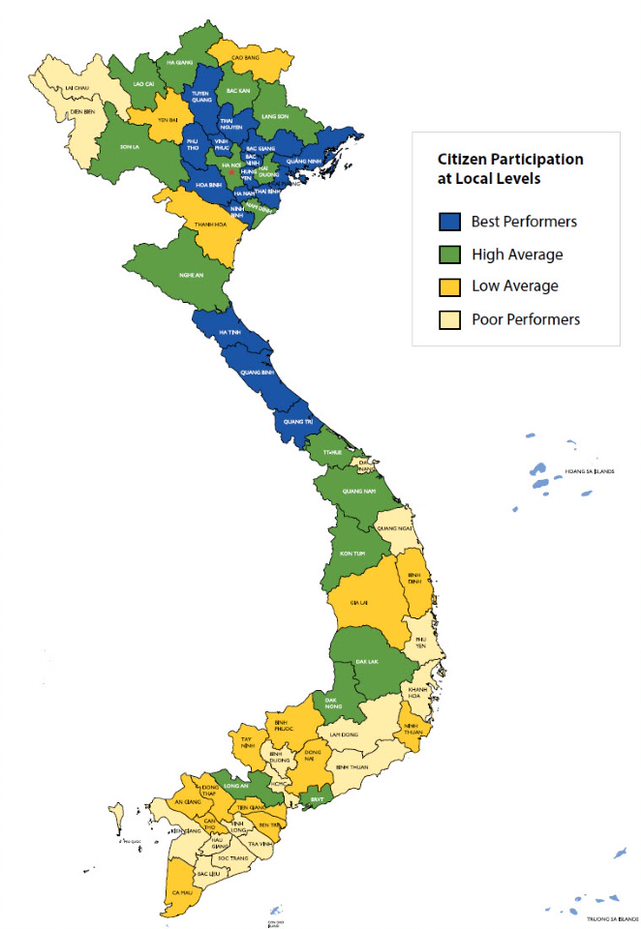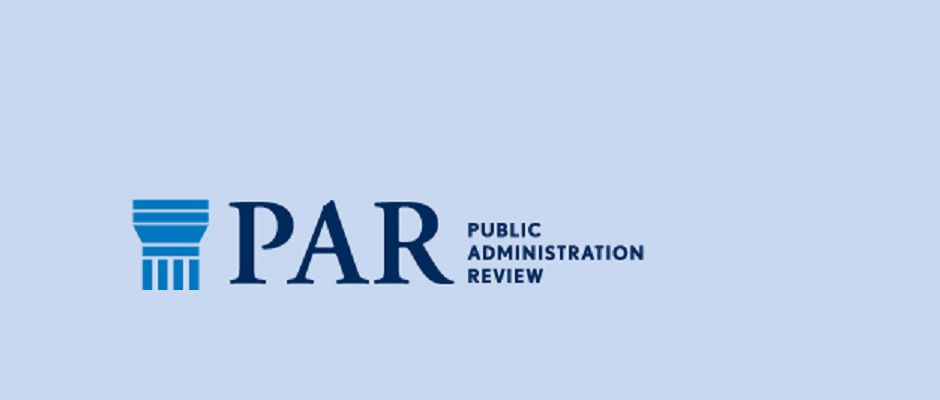
The Viet Nam Provincial Governance and Public Administration Performance Index (PAPI) is a policy monitoring tool developed by the United Nations Development Program (UNDP) to promote public administration efficiency, reduce corruption, and better identify and meet citizens’ needs by ensuring citizens’ participation and collecting citizens’ experiences and opinions on provincial government performance.
The program has been used by the Vietnamese government since 2009. Every year, a nationally representative, randomly selected sample of around 14,000 citizens from all 63 provinces receives a survey asking for their experiences on interactions with provincial government and their perceptions of quality of policy implementation on the provincial level. The survey targets eight key dimensions of government performance:

- Participation at Local Levels
- Transparency in Local Decision-making
- Vertical Accountability Towards Citizens
- Control of Corruption in the Public Sector
- Public Administrative Procedures
- Public Service Delivery
- Environmental Governance
- E-Governance
The goals and expected outcomes of PAPI are to improve provincial government performance by enhancing citizen participation and monitoring and to ultimately benefit citizens via fostering economic development and government reform.
There is an array of evidence showing the effectiveness of PAPI. For example, 38 provinces accelerated their pace of issuing new policies in 2018 based on local residents’ feedback that they received. In general, provincial government has been responding to citizens’ feedback through different channels including party resolutions, action plans, directives, diagnostic workshops, official letters, and press briefings. In addition, diagnostic workshops and action plan development for PAPI have been independently funded by the government on provincial and local levels, demonstrating buy-in and sustainability of the project.
Like most development programs, PAPI still has some room for improvement. Dr. Eddy Malesky, one of the 2020 PAPI report co-authors and director of the Duke Center for International Development, points out that internal migration might cause an inaccurate reflection of citizens’ perception of provincial policy implementation because migrant workers generally have less interaction with local government officials than permanent residents. On the other hand, the “mass exodus of migrants” also reveals the challenges posed on local and provincial governments, including unbalanced economic development (unevenly distributed employment opportunities) and climate change (flooding, rising sea level, and so on).
Complemented by three other national indexes (PCI, PAR, SIPAS), PAPI is an effective tool to assess, monitor, and improve provincial government performance and contributes to the decentralization and development of Viet Nam.
Learn more about the Viet Nam Provincial Governance and Public Administration Performance Index (PAPI):
Duke political economist leads research on two new reports launched in Vietnam
https://vietnam.un.org/sites/default/files/2019-08/API2014_FinalReport_SmallSize_ENG_0.pdf



